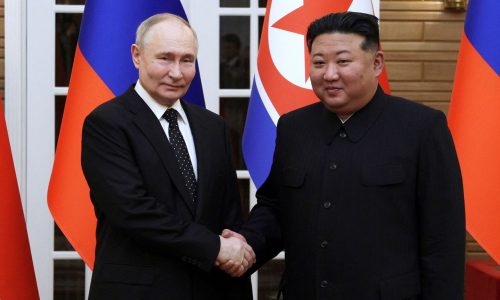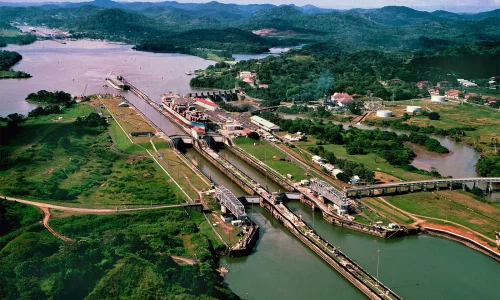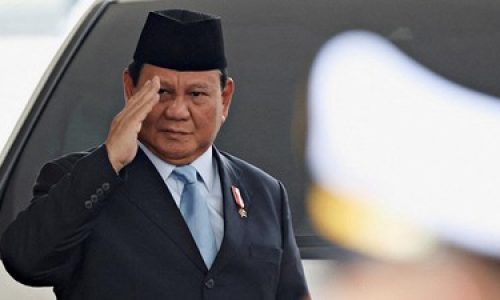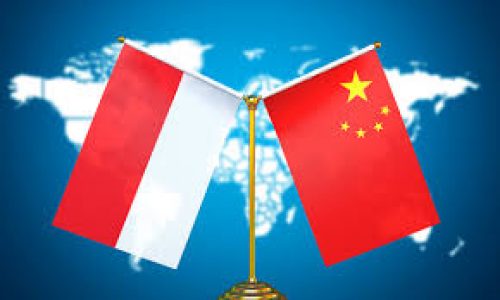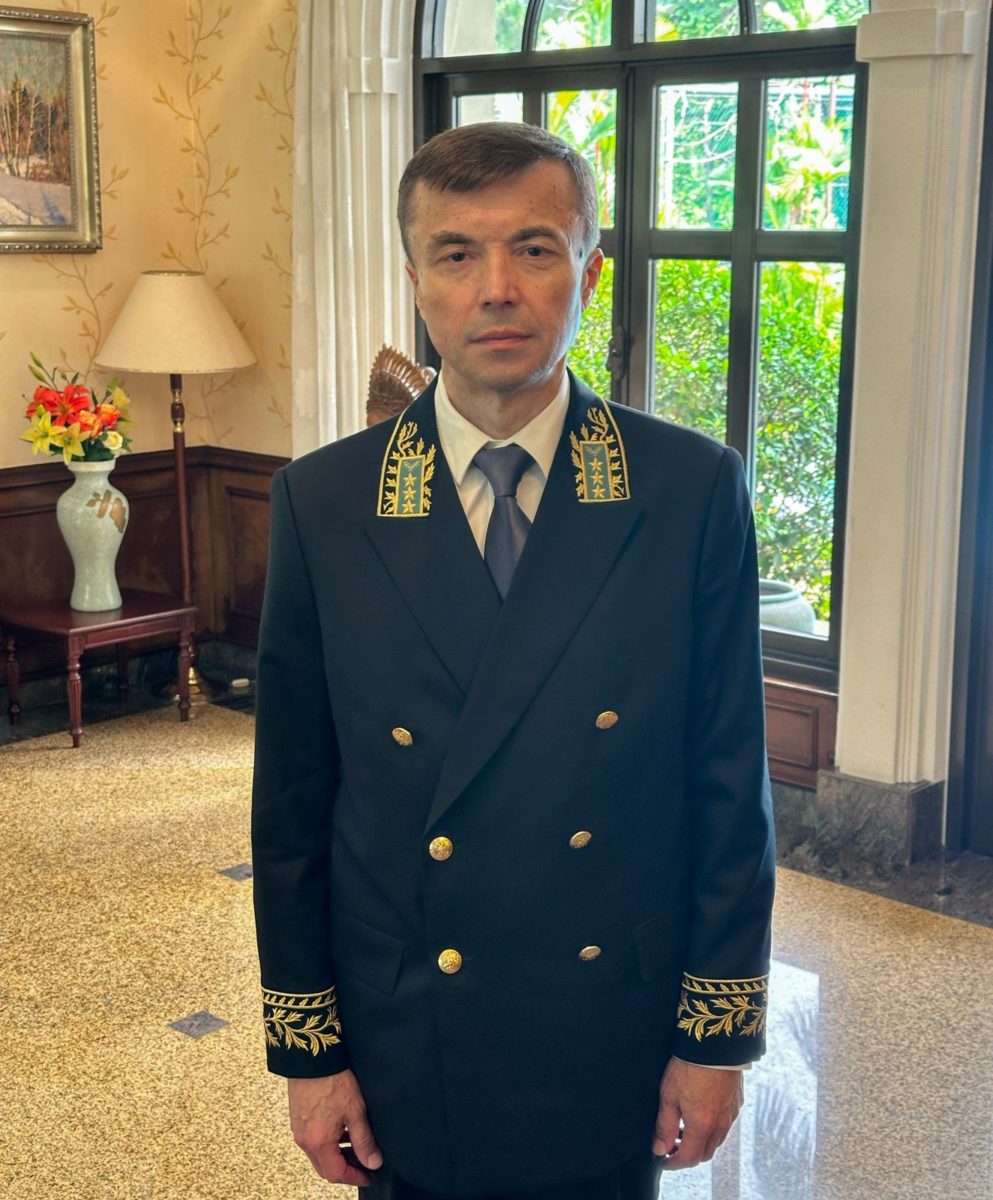
Sergei Tolchenov
Jakarta
It is well known that current international monetary and financial system is based on the decisions and agreements reached at the Bretton Woods (1944) and Jamaica (1976) conferences, which laid the foundation for the US and other Western economies’ exclusive role in the global finance. This is why international monetary and financial system is West- and dollar-centric in all its major aspects: instruments (currencies, with the supremacy of the US dollar), technological platforms and solutions, management/administration.
To a great extent it reflects primarily the interests of the small number of countries, and for many years the system has allowed the United States and its allies to use it to attain their geopolitical goals, including through a range of illegal economic and financial sanctions.
At the same time, over the past few decades, the balance of power in the world economy has been shifting towards of the countries of the Global South and East (Emerging Market and Developing Economies, EMDEs). Over that time EMDEs have significantly increased their global GDP share (in 1980 – 37.3 percent, in 2023– 58.8 percent; while the share of developed countries (based on PPP) decreased from 62.7 percent to 41.2 percent), intensified intragroup trade and investment ties, accumulated significant financial resources, as well as increased technological and digital competencies, and expertise.
Major EMDEs economies now play a more visible and assertive role globally, which, among other things, prompted them to launch new forms of multidimensional cooperation (BRICS Group accounts for about 36 percent of the global GDP) and seek better representation of theirs interests within the international monetary and financial system. For example, IMF quota shares of largest EMDEs does not correspond to their economic potential and share in the global economy. China’s quota share is 6.4 percent, that of India is 2.75 percent, while the US has the quota share of 17.43 percent.
Should their concerns be currently ignored by Western economic leaders, EMDEs are able and prepared to start developing alternative mechanisms of international financial cooperation.
Surely, the current dollar-centric international monetary and financial system has a number of advantages for EMDE countries (and so it has been for Russia until recently). Among them convenience and affordability of transactions based on the universally accepted international currency while using habitual and familiar transaction channel (SWIFT).
However, risks and limitations of the existing international monetary and financial system have become increasingly evident for the EMDEs, too. First, US monetary tightening cycles have a systematic negative impact on the economic growth and macro-financial stability in the EMDEs. Moreover, despite diminishing role of the US in the global economy since the 1970s, the negative impact has not eased largely due to the dominant role the American currency in the global markets.
Second, these days a whole group of nations can no longer afford considering US Treasury bonds a totally risk-free asset (to mitigate the uncertainty of macroeconomic conditions) as political and sanctions risks are inherently difficult to quantify and forecast.
Third, countries of the global South and East have limited capabilities in terms of protecting their rights and interests within the existing international monetary and financial system. Active US sanctions policy against Russia, China, Iran, etc. have clearly highlighted that the current design of the global financial framework is a tool of economic warfare, which allows Western countries to deprive their geopolitical opponents and competitors of assets, disrupt work of individual companies and even entire industries, and deny countries access to technological and commodity markets.
In other words, this volume of EMDE’s international financial assets is theoretically at risk of being frozen by developed countries. These risks combined lay ground for gradual erosion of the US dollar status as the main international currency. Even the US Treasury Department concedes possible weakening of the dollar’s international role due to the use of sanctions, while large Western financial institutions and leading experts openly warn of the trend. These include the International Monetary Fund, as well as the largest American bank JP Morgan. Over 40 percent of the central banks worldwide believe that the use of sanctions by the United States will cause a decrease in the share of the dollar in the international reserves.
At the same time, China, India, as well as a number of countries in the Middle East, Southeast Asia and Latin America are intensifying trade in national currencies. In particular, Indonesia, as of March 2024, has signed such agreements with seven countries, both the developed and the EMDEs.
In recent years, de-dollarization priorities have been enshrined in the declarations of such large integration organizations as BRICS, ASEAN and Shanghai Cooperation Organization (SCO). It is also worth noting that de-dollarization has been actually achieved within the Eurasian Economic Union, as well as in bilateral cooperation between Russia and a number of its key trade partners, primarily China.
We also observe a rising trend that calls into question technological dominance of Western financial infrastructure solutions (such as the SWIFT financial messaging system, and international clearing institutions). Over the last decade a number of effective and reliable SWIFT alternatives have emerged, including the Russian Central Bank’s Financial messaging system (SPFS), the Chinese CIPS, to mention a few, as well as various CBDC projects (central bank digital currencies).
Thus, there is the right environment for possible qualitative transformation of the global monetary and financial system design. This can take form of a new parallel (alternative) mechanisms of financial cooperation, which will be launched and maintained primarily by countries of the Global South and East to secure sustainable growth of their economies. This process is of organic nature. Intensification of geo-economic competition in the recent years has only accelerated it significantly.
For the EMDEs, possible benefits related to creation of new, more flexible formats of financial cooperation are the following:further expansion of trade and economic cooperation among the EMDEs, strengthening of their financial and economic sovereignty and reduction of their dependence on Western currencies and technological solutions, a better mitigation of geo-economic risks, fostering development of the national financial markets and financial infrastructure, upscale of national digital competencies.
In 2023, Russian VTB Bank – one of the major players in national financial market – proposed a number of steps aimed at creating alternative mechanisms for international financial cooperation. They include use of national channels for transmitting financial information, development of national payment systems and cross-border “docking”/integration (avoiding SWIFT and similar Western solutions); development of horizontal connections between banks, getting rid of financial intermediaries in the West; creation of a new international depository/settlement hub; development of financial instruments in non-Western currencies (for the purposes of trade finance, bonds, direct and portfolio investments, etc.).
Creation of alternative financial mechanisms should have the purpose of protecting the rights and interests of all its participants. Their design should ensure that no country has the right or technical capability to restrict access to these mechanisms on political grounds or for any other reasons. Emergence of this kind of alternative will inter alia reduce risks of destabilization of international monetary and financial system, which will ultimately give an impetus to the growth of the global economy.
The author is Ambassador of Russia to Indonesia.



